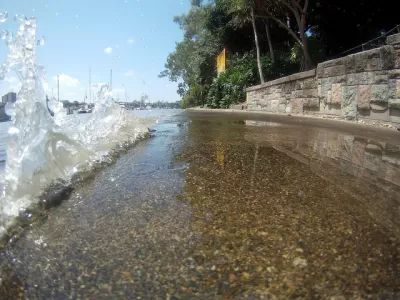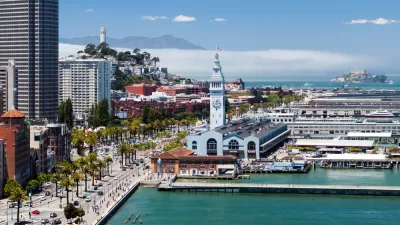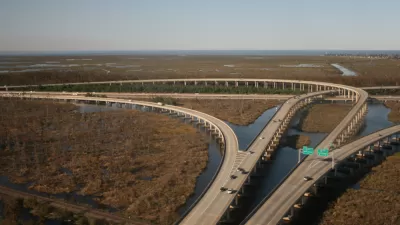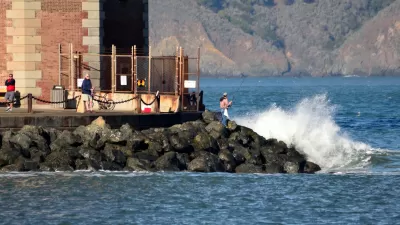A new report summarizes the impact rising sea levels would have on California residents, businesses, and infrastructure. The effects would be catastrophic for the San Francisco Bay Area.

Roxy Bonafont shares news of a new report from the California State Legislative Analyst’s office that quantifies the risk to property, public and private, in the state of California as a result of expected sea-level rise.
"Sea levels on the California coast could rise as much as seven feet by 2100 and put tens of thousands of vulnerable San Franciscans at risk of daily flooding, according to the climate change that informs the new report.
The effects for the state of California would be catastrophic, according to Bonafont's explanation for he report's findings:
Between $8 billion and $10 billion worth of existing property in California will likely be underwater by 2050, the report states, and an additional $6 billion to $10 billion will be at risk at high tide. A six-foot sea level rise, combined with recurring annual storms, would put over 480,000 California residents and $119 billion in property value. Five feet of sea level rise would put 55 percent of coastal habitats in California at high risk of flooding and damage. Rising sea levels could also contaminate drinking water with saltwater or toxic materials.
The news isn't any better for the Bay Area, either:
A four-foot increase in sea levels would put a significant amount of Bay Area infrastructure at risk of flooding, including 59 miles of highways and bridges, 48 miles of freight rail lines, 20 miles of passenger rail lines, 11 acres of ferry terminals, 780 acres of seaports, and 4,670 acres of airports. A six-foot increase would put 30 San Francisco wastewater treatment plants at risk of flooding — far more plants than in any other part of the state — which could cause toxic sewage leaks that endanger the health of the surrounding community.
The San Francisco Bay Area's economy, already hampered by the pandemic, would also lose some of its clout, as 104,000 existing jobs in the Bay Area would be forced to relocate in the event of four feet of sea-level rise.
FULL STORY: Sea Level Rise a Major Threat to San Francisco

Planetizen Federal Action Tracker
A weekly monitor of how Trump’s orders and actions are impacting planners and planning in America.

Maui's Vacation Rental Debate Turns Ugly
Verbal attacks, misinformation campaigns and fistfights plague a high-stakes debate to convert thousands of vacation rentals into long-term housing.

Restaurant Patios Were a Pandemic Win — Why Were They so Hard to Keep?
Social distancing requirements and changes in travel patterns prompted cities to pilot new uses for street and sidewalk space. Then it got complicated.

In California Battle of Housing vs. Environment, Housing Just Won
A new state law significantly limits the power of CEQA, an environmental review law that served as a powerful tool for blocking new development.

Boulder Eliminates Parking Minimums Citywide
Officials estimate the cost of building a single underground parking space at up to $100,000.

Orange County, Florida Adopts Largest US “Sprawl Repair” Code
The ‘Orange Code’ seeks to rectify decades of sprawl-inducing, car-oriented development.
Urban Design for Planners 1: Software Tools
This six-course series explores essential urban design concepts using open source software and equips planners with the tools they need to participate fully in the urban design process.
Planning for Universal Design
Learn the tools for implementing Universal Design in planning regulations.
Heyer Gruel & Associates PA
JM Goldson LLC
Custer County Colorado
City of Camden Redevelopment Agency
City of Astoria
Transportation Research & Education Center (TREC) at Portland State University
Jefferson Parish Government
Camden Redevelopment Agency
City of Claremont





























